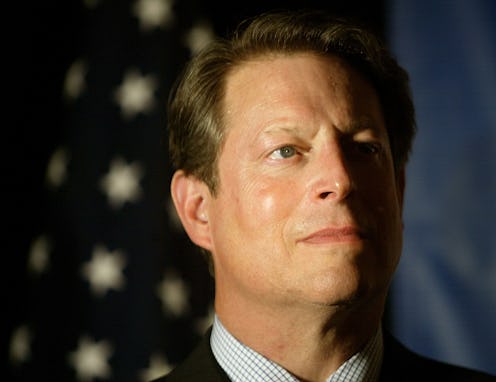News
This Voting Amendment Has Been Proposed Before
With the presidential election less than three weeks away, the electoral college is now receiving its quadrennial wave of heightened attention and scrutiny. It's a system often perceived as undemocratic, and it's received its fair share of derision and outrage. Most controversially, it's occasionally resulted in somebody becoming president without receiving a majority of votes. There have been many attempts to rectify this, and the Every Vote Counts Amendment is one of them.
The amendment has been proposed by many lawmakers over many years, and it's pretty simple. It abolishes the electoral college completely and replaces it with a nationwide popular vote. If the amendment were ever ratified, electoral votes would become a relic of the past, and the candidate who received the most votes nationwide would become president. Simple as that.
Unfortunately, the Every Vote Counts Amendment isn't likely to be adopted anytime soon, or perhaps ever. The reason is a bit complicated, but it comes down to basic math: The electoral college gives disproportionate voting power to smaller states. A Constitutional amendment requires the support of a majority of states to be ratified; and there are more small states than large states in the country.
The Every Vote Counts Amendment, therefore, is more or less doomed. The very people who would have to vote for it in order for it to be ratified — that is, lawmakers from small states — don't have the incentive to support it, because their states benefit from the electoral college. A small state like New Hampshire, for example, wouldn't receive nearly as much attention from candidates around election time if it weren't for the electoral college. Why, then, would New Hampshire lawmakers vote to get rid of the electoral college? They wouldn't.
A more viable way to make presidential elections more democratic would be to change the way states allocate their electoral votes. The vast majority of states use a "winner-take-all" system, wherein the candidate who wins the statewide vote receives all of the state's electoral votes. But Nebraska and Maine allocate their electoral votes on both a statewide- and congressional district-level. This is how Barack Obama ended up taking away an electoral vote from deep-red Nebraska in 2008, even though the state as a whole voted for John McCain.
This isn't a purely democratic system, but it's certainly more democratic than the winner-take-all method most states use in allocating their electoral votes. If more states were to adopt these sorts of reforms — and it's in their power to do this — the electoral college would be substantially fairer. Some states, such as Colorado, have attempted to do this, though none with any success.
The Every Vote Counts Amendment would make America's presidential elections purely democratic. But ironically, the democratic realities of the House and Senate make it unlikely that the amendment, or anything like it, will ever become law.
